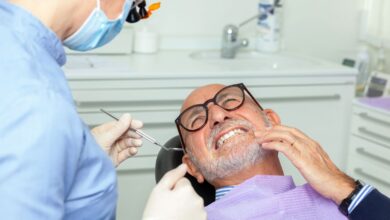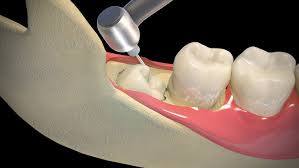Dermatologist-Recommended Acne Treatments You Should Try

Acne is a common skin condition that affects millions of people worldwide. While it is often associated with adolescence, acne can persist into adulthood and significantly impact one’s confidence and quality of life.

Fortunately, advancements in dermatology have led to a variety of effective treatments. In this article, we will explore dermatologist-recommended acne treatments that you should consider for clearer, healthier skin.
Understanding Acne
Before exploring the treatments, it’s crucial to understand the causes of acne. Acne arises when hair follicles are obstructed by oil and dead skin cells.
This blockage creates an environment where bacteria can flourish, resulting in inflammation and pimples. Several factors contribute to acne, including genetics, hormones, diet, and stress.
To find effective acne treatment tailored to your needs, consider consulting experts like Moyem Medical Aesthetics.
Top Dermatologist-Recommended Acne Treatments
Dermatologists recommend a range of treatments depending on the severity and type of acne. These treatments include topical medications, oral medications, and various in-office procedures.
Topical Treatments
Topical treatments are often the first line of defense against acne. They are applied directly to the skin and are effective for mild to moderate acne.
- Benzoyl Peroxide
How It Works: Benzoyl peroxide is a powerful antibacterial agent that reduces the bacteria responsible for acne. It also helps to unclog pores by removing dead skin cells.
Usage: Available in various forms, including gels, creams, and cleansers, benzoyl peroxide is typically used once or twice daily. Start with a lower concentration to minimize irritation.
Pros: Effective in reducing acne-causing bacteria and preventing future breakouts.
Cons: Can cause dryness and irritation, especially for those with sensitive skin. It may bleach hair and fabrics.
- Salicylic Acid
How It Works: Salicylic acid is a beta-hydroxy acid (BHA) that exfoliates the skin, helping to unclog pores and reduce inflammation.
Usage: Found in cleansers, toners, and spot treatments, salicylic acid is usually applied once or twice a day.
Pros: Helps to clear pores and reduce blackheads and whiteheads.
Cons: Can cause dryness and peeling, especially when first used.
- Retinoids
How They Work: Retinoids, derived from vitamin A, promote cell turnover and prevent the clogging of hair follicles. They also have anti-inflammatory properties.
Usage: Available as prescription (e.g., tretinoin, adapalene) and over-the-counter (e.g., retinol) formulations, retinoids are typically applied at night.
Pros: Highly effective for treating acne and improving skin texture.
Cons: Can cause dryness, redness, and sensitivity to sunlight. It may take several weeks to see improvement.
Oral Treatments
For moderate to severe acne, dermatologists may prescribe oral medications. These treatments work systemically to address underlying causes of acne.
- Antibiotics
How They Work: Oral antibiotics, such as doxycycline and minocycline, reduce bacteria and inflammation.
Usage: Typically prescribed for a few months to control acne and are often used in combination with topical treatments.
Pros: Effective in reducing severe acne and inflammation.
Cons: Potential side effects include gastrointestinal issues and antibiotic resistance. Not suitable for long-term use.
- Oral Contraceptives
How They Work: Certain oral contraceptives can help regulate hormones that contribute to acne, making them an option for women with hormonal acne.
Usage: Prescribed by a doctor, these birth control pills contain estrogen and progestin.
Pros: Can significantly improve hormonal acne and regulate menstrual cycles.
Cons: Potential side effects include weight gain, mood changes, and increased risk of blood clots.
- Isotretinoin (Accutane)
How It Works: Isotretinoin is a powerful retinoid that reduces oil production, unclogs pores, and decreases inflammation.
Usage: Usually prescribed for severe acne that hasn’t responded to other treatments. Taken orally for several months under strict medical supervision.
Pros: Highly effective, often leading to long-term remission of acne.
Cons: Significant potential side effects, including dry skin, nosebleeds, and birth defects. Requires careful monitoring by a dermatologist.
In-Office Procedures
Dermatologists offer various in-office procedures to treat acne and its aftermath, such as scars and discoloration.
- Chemical Peels
How They Work: Chemical peels use acids (e.g., glycolic acid, salicylic acid) to exfoliate the top layers of skin, reducing acne and improving skin texture.
Usage: Performed by a dermatologist, these treatments can range from superficial to deep peels, depending on the severity of the acne.
Pros: Can improve skin texture and reduce acne scars.
Cons: Possible side effects include redness, peeling, and temporary sensitivity.
- Laser and Light Therapy
How It Works: Laser and light therapies target acne-causing bacteria and reduce inflammation. Common types include blue light therapy and pulsed dye laser.
Usage: Typically done in a series of sessions, these treatments are painless and require no downtime.
Pros: Effective for reducing acne and improving skin appearance.
Cons: Can be expensive and may require multiple sessions for optimal results.
- Corticosteroid Injections
How They Work: Corticosteroid injections can rapidly reduce the size and pain of large, inflamed acne cysts.
Usage: Performed by a dermatologist, a small amount of corticosteroid is injected directly into the acne cyst.
Pros: Quick relief from painful cystic acne.
Cons: Potential side effects include skin thinning and discoloration at the injection site.
Creating an Acne Treatment Plan
Choosing the right acne treatment depends on several factors, including the type and severity of acne, skin type, and individual preferences. Here are steps to create an effective acne treatment plan:
Step 1: Consult a Dermatologist
A dermatologist can diagnose the type of acne and recommend the most appropriate treatments. They can also provide guidance on managing side effects and adjusting treatments as needed.
Step 2: Start with Gentle Treatments
For mild acne, begin with over-the-counter treatments like benzoyl peroxide or salicylic acid. Use them consistently for several weeks before assessing their effectiveness.
Step 3: Incorporate Prescription Treatments if Needed
If over-the-counter treatments are not effective, consult your dermatologist about prescription options such as topical retinoids or oral antibiotics.
Step 4: Consider In-Office Procedures
For persistent or severe acne, explore in-office procedures like chemical peels or laser therapy. These treatments can complement your at-home regimen.
Step 5: Maintain a Consistent Skincare Routine
Consistency is key in treating acne. Follow your dermatologist’s recommendations and maintain a gentle skincare routine, including a mild cleanser and moisturizer suitable for acne-prone skin.
Tips for Managing Acne
In addition to medical treatments, lifestyle and skincare habits play a crucial role in managing acne.
Tip 1: Avoid Picking or Popping Pimples
Picking or popping pimples can lead to scarring and further inflammation. Instead, use spot treatments to reduce their appearance.
Tip 2: Use Non-Comedogenic Products
Choose skincare and makeup products labeled as non-comedogenic, meaning they won’t clog pores.
Tip 3: Maintain a Healthy Diet
A diet rich in fruits, vegetables, and whole grains can support skin health. Avoid excessive consumption of sugary and processed foods, which may exacerbate acne.
Tip 4: Manage Stress
Stress can worsen acne, so practice stress management techniques such as exercise, meditation, and adequate sleep.
Tip 5: Stay Hydrated
Drink plenty of water to keep your skin hydrated and support overall health.
Conclusion
Acne is a challenging condition, but with the right treatments and skincare routine, it is manageable. Dermatologist-recommended treatments, ranging from topical and oral medications to in-office procedures, offer effective solutions for various types of acne.
Consulting a dermatologist is essential to developing a personalized treatment plan that addresses your specific needs and ensures the best possible results. By combining medical treatments with healthy lifestyle habits, you can achieve clearer, healthier skin and boost your confidence.



